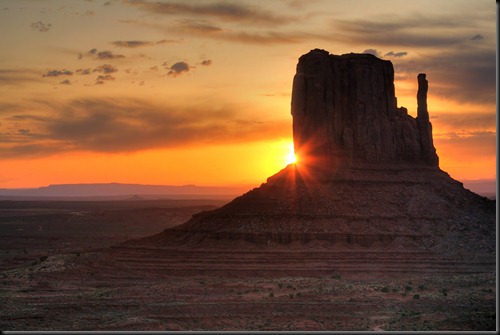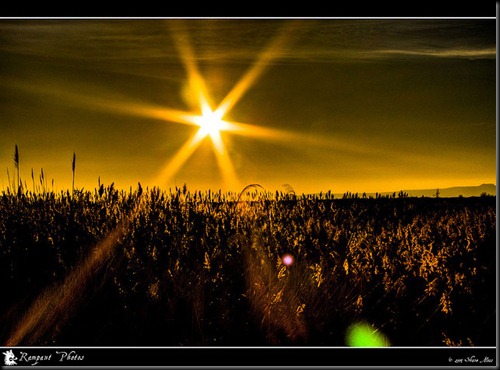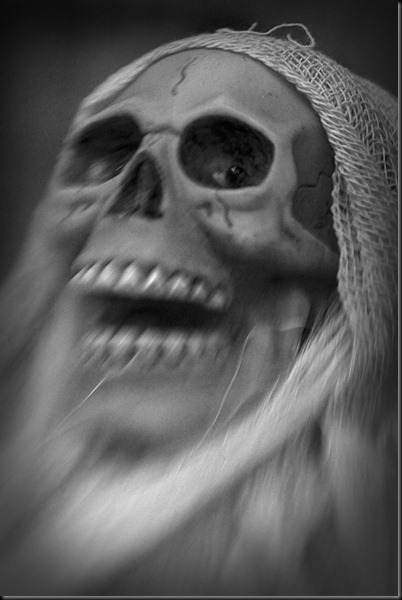This will be a particularly short blog since I haven’t done too much photography with deliberately wanted lens flare or large amounts of film grain. Still, I have done a little.
Lens flare occurs when bright lights (especially those from the sun) enter a lens and scatter in the lens system creating generally unwanted hazing, low contrast, and/or lens artifacts. Usually lens artifacts are not wanted and can be minimized through the use of a lens hood or other type of shade.
Sometimes, lens flare is introduced deliberately since it can imply drama or at least a sense of realism due to the unedited look these artifacts imply. Sometimes they just look cool. Sometimes they not worth the trouble of trying to remove in post-processing.
Here is an image of a sunset I took in Monument Valley showing a lens flare. Personally I like the radiating spokes of light that the flare creates. Without the flare the dramatic look of the sun peeking behind this butte would have been minimized:
The following is a nice flare photo by Shane Moss:
Lens flare can be added artificially in post-processing using any of a variety of programs.
Film grain represents an optical texture that appears randomly in film. Technically, film grain doesn’t appear in digital cameras but image noise does. Film grain and digital noise can exhibit much of the same look. High ISO settings and low exposures, among other things, can cause grain to increase. Noise reduction programs can be used in post to eliminate some of this noise. Sometimes film grain / digital noise an be counted on to improve a photograph. It can create a dramatic or moody feel to an image. If noise isn’t captured in camera, post-processing programs like Photoshop can add some. Simply look for film grain filters.
The following image was taken at Halloween. I realized that I would need to use a high ISO and I worried about the noise that would be generated. Then I realized that the image content would benefit from the noise.








